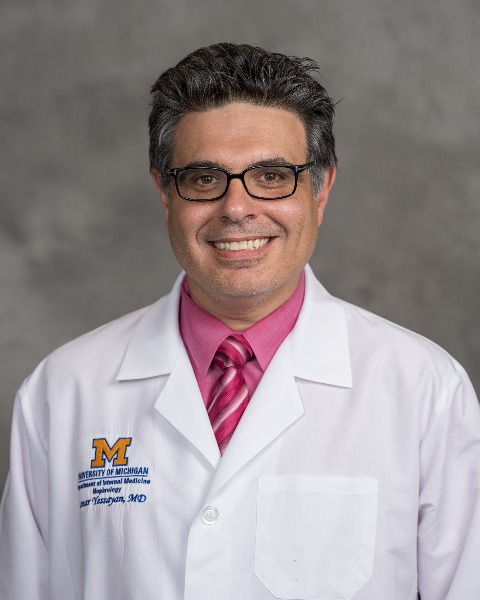SCD Treatment in COVID-19 ICU Patients With ARDS and AKI Is Safe and May Improve Outcomes
-

Lenar Yessayan, MD, MS
Professor of Medicine
University of Michigan
Northville, MIDisclosure information not submitted.
-
HH
H. David Humes, MD
Professor of Internal Medicine
University of Michigan, SeaStar Medical, United StatesDisclosure information not submitted.
-
BS
Balazs Szamosfalvi, MD
Associate Professor
University of Michigan, United StatesDisclosure information not submitted.
-
AW
-
JM
First Author(s)
Co-Author(s)
Title: SCD Treatment in COVID-19 ICU Patients With ARDS and AKI Is Safe and May Improve Outcomes
Introduction/Hypothesis: ICU patients with COVID-19 with acute respiratory distress syndrome (ARDS) on mechanical ventilation (MV) and acute kidney injury (AKI) requiring continuous renal replacement therapy (CRRT) have published mortality rates approaching 70%. Elevation of certain inflammatory mediators, including IL10 and interleukin 1 receptor-like 1 (sST2), predict mortality in COVID-19 patients and declines as patients recover. Previous data have shown that treatment with a SeaStar Medical Selective Cytopheretic Device (SCD) improves clinical outcomes in ARDS and severe AKI by removing proinflammatory leukocytes from circulation and reducing plasma levels of inflammatory cytokines. The aim of this feasibility study was to evaluate the safety and early efficacy outcomes of the SCD treatment (Tx) in ICU COVID-19 patients with ARDS on MV and AKI requiring CRRT.
Methods: Thirteen subjects were enrolled and treated with the SCD for ≤10 days. All patients but 1 were on both MV and CRRT with 8 patients on extracorporeal membrane oxygenation (ECMO). A subgroup of 9 patients was further evaluated with plasma inflammatory biomarkers and cell sorting/cytometric analysis (CSCA) of circulating neutrophils and monocytes.
Results: Patients completed the study between November 24, 2020 and July 5, 2021. Mean age was 52 years (19-75). Patients were previously treated with remdesivir and corticosteroids. No device-related serious adverse events were reported. 60-day mortality rate was 4/13 (31%). For the survivors, SCD improved SOFA scores from 10.78±0.7 to 8.33±1.0 (p < 0.03) within 5 days after Tx. CSCA demonstrated SCD removed the most activated circulating neutrophils (CD11b, CD10) and monocytes (CD11b, CD14). SCD Tx resulted in declines in plasma IL6, MCP (Monocyte Chemotactic Protein)-1, IL10, and sST2 with plasma levels IL10 (12±9 pg/ml vs. 2±1, p < 0.02) and sST2 (212±70 pg/ml vs. 88±74, p < 0.02) prior to and during SCD treatment.
Conclusions: SeaStar Medical's SCD treatment is safe in ICU COVID-19 patients with ARDS on MV and AKI requiring CRRT. In this feasibility study, mortality rate was substantially lower than reported in observational studies, suggesting clinical benefit.
